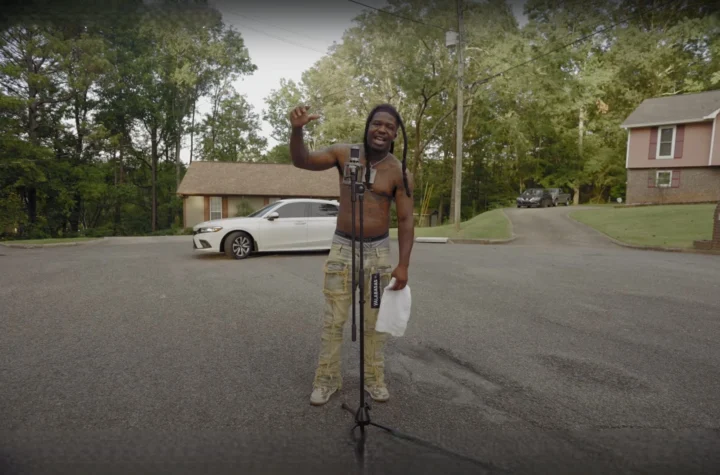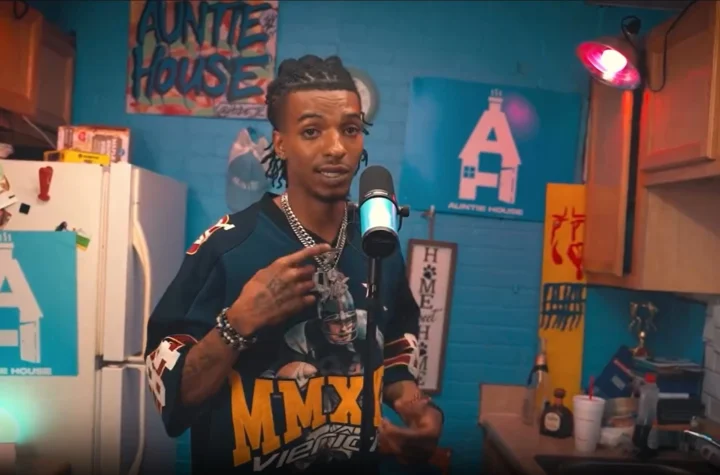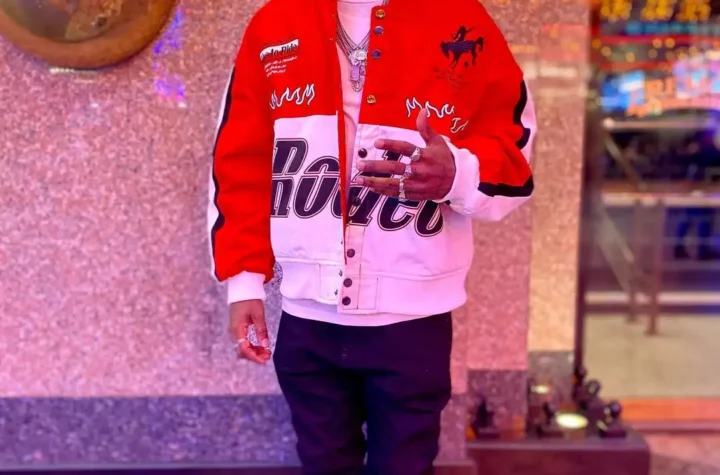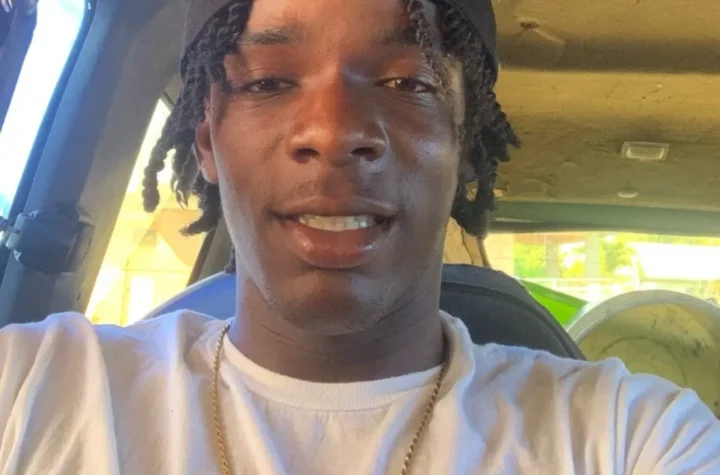
On a supporting, radiant evening in the country’s capital, one day after the House casted a ballot to push ahead with prosecution, Mavi’s psyche is on anything besides Trump. We are sitting in Sankofa, the milestone network book shop situated over the road from Howard University, where Mavi is a lesser considering neuroscience. The 20-year-old is recollecting his initial introduction to Nikki Giovanni’s The Sun Is So Quiet, the artist and dissident’s 1996 youngsters’ book, and lauding the drastically disapproved of book club run by individual rapper Noname. “Empowering monetary inclusion in your locale book shop, spreading appropriate data for getting individuals of color through this second, I fuck with that,” he says. “It’s genuine helpful, and past that, it’s lovely.”
Omavi Minder bounced to the front of a rising class of youthful, nice rappers the previous fall with Let the Sun Talk, and much like Noname’s Book Club, the mixtape is tied in with dispersing appropriate data with a supportive of dark plan. The tape’s verbally expressed word opener “Terms and Conditions” makes Mavi’s points understood: “To be favorable to dark/Means to determinedly seek after/Money, land, weapons and helpful information/For the reason of creating and keeping up/Healthy and productive dark networks/It implies the cultivation of a culture/That fortifies a bound together vision of dark prosperity.” The world’s dread of a dark planet is the thing that drives his tunes.
Sitting in Sankofa, as legacy rap and great reggae floats around us, Mavi is indifferent and chiming in, wearing layers like somebody who presently knows the inconsistent D.C. winter well: a showed NASCAR T-shirt under a hurdle up dim hoodie under a pinstripe New York Yankees pullover under a dark coat. The dreadlocks clouding his face once in a while dissipate to uncover a base line of gold fronts. The school semester has recently finished, and tomorrow he’ll come back to Charlotte, North Carolina for winter break.
Mavi’s folks are initially from nation towns in South Carolina, and they each set out to improve by their people in the future by moving to Charlotte for school. His mother fills in as a medical caretaker and he alludes to his father as a “polymath-style nigga,” a software engineer and maker of Southern hip-jump who made a studio in their home, which prompted Mavi’s initial presentation to rap music. The two guardians imparted in him a profound self esteem, a longing for individual independence (“Any dollar I can make myself is generally more important than any dollar you can give me”), a crave information, and a longing to achieve dark freedom. He emerges from a network that energized together after rapper Donkey Cartel was executed by an off the clock cop on Christmas Eve 2015, and ascended when Keith Lamont Scott was slaughtered by law authorization in his own high rise in 2016. “This poo in me, not on me,” he says, gladly. “From truly before I knew it, I was learning this crap.”
As a coordinator with the understudy lobbyist bunch HU Resist, Mavi helped lead a dissent of the college in the midst of a money related embarrassment in 2018. His raps have become another approach to connect with his childhood development, however they weren’t generally so engaged. On early mixtapes like 2016’s Beacon and 2017’s No Roses, he appeared to be more worried about putting his noteworthy detail in plain view, sparing his support for explicit minutes on melodies like “Guide” and “rest.” A scholarly enthusiasm for the idea of cognizance and existential phenomenology drove his raps to turn out to be more reflective and philosophical. And keeping in mind that he hasn’t generally been around for the post-DaBaby blast in Charlotte rap, he focuses to the city’s “rich-ass culture” and communitarian craftsmanship scene as impacts.
From Giovanni to ringer snares, the rundown of scholars who have affected Mavi is broad—thus, as well, is his rundown of powerful specialists. Early standards included dead prez’s Let’s Get Free and the Roots’ How I Got Over, interesting rappers like the Fugees, Nas, and Pharoahe Monch, reggae scion Damian Marley, soul vocalists like Maxwell, Kem, and Anthony Hamilton. He refers to the standard rapper’s rappers, similar to MF Doom and JAY-Z, as models for the manner in which he contemplates composing melodies, yet additionally Chief Keef, Young Thug, and Future. He rambles about rapping in code, the demonstration of conveying a “cool nigga guide” that can draw just similarly invested individuals together.
In the event that his ongoing history is any sign, the guide works. After some to and fro with skater-turned-rapper Sage Elsseser on Twitter and SoundCloud, Mavi was received by the lo-fi rap network that incorporates MIKE, Medhane, Pink Siifu, (Liv).e, Akai Solo, and that’s only the tip of the iceberg. He’s done melodies and shows with them, smoked with them, and rested on their sofas. It was at one of their common occasions, a 2018 show for Pink Siifu’s ensley, that he performed portions of Let the Sun Talk just because. The following day, Mavi and MIKE made the collection’s “Moonfire,” and MIKE acquainted Mavi with Earl Sweatshirt just because. They reinforced on FaceTime over Howard and understudy sorting out.
Before long, Sweatshirt got probably the greatest supporter, shutting a mutual referential circle by delivering Feet of Clay, which Mavi impacted as well as added to. (Lord additionally delivered the Let the Sun Talk cut “Sense.”) With a co-sign from the most compelling rapper in his writerly, test substantial specialty, Mavi became blessed. He wasn’t hoping to develop a base: “[Let the Sun Talk] had much a larger number of eyes on it than I expected,” he clarifies. Looking forward, he portrays his forthcoming undertaking, called Sango and probably showing up this year, as “earthy colored sugar between the teeth.” Another coded message.
Mavi comprehends that rap is additionally sport, contrasting it at one point with wrestling (“DJ Akademiks is a heel”), however he won’t let that divert from building something gainful to his center reason. His activity is altogether DIY. He has no supervisory group; he handle press and booking requests himself, and he records on the floor in the lounge of his off-grounds lodging. “The explanation marks can’t get they hands on me is on the grounds that I don’t need only better blending and more shows,” he says. “Also, that don’t cost substantially more than streams can give you. I’ll take my risks.”
In discussion, he dances to and fro between cheerful spitter not yet mature enough to drink and significant rationalist well past his years. He invests a ton of energy considering battling racial domination, and his verses are currently an augmentation of that strategic. “Actually at each age, the U.S. government got innovative about getting niggas outta here. They done got substance, numerical, algorithmic, topographical. They truly got occupied,” he says, stopping a second, “however they left the library open.





More Stories
TLE RO – Bessemer’s Next Big Voice in Hip-Hop Drops “Stand Firm” Ahead of Mama’s Lil Steppa 2
UberPack Is Next Up: Detroit’s Pain-Turned-Poetry Rap Phenom
Spazz Gee: The Visionary Hip-Hop ArtistRedefining the Sound of Las Vegas